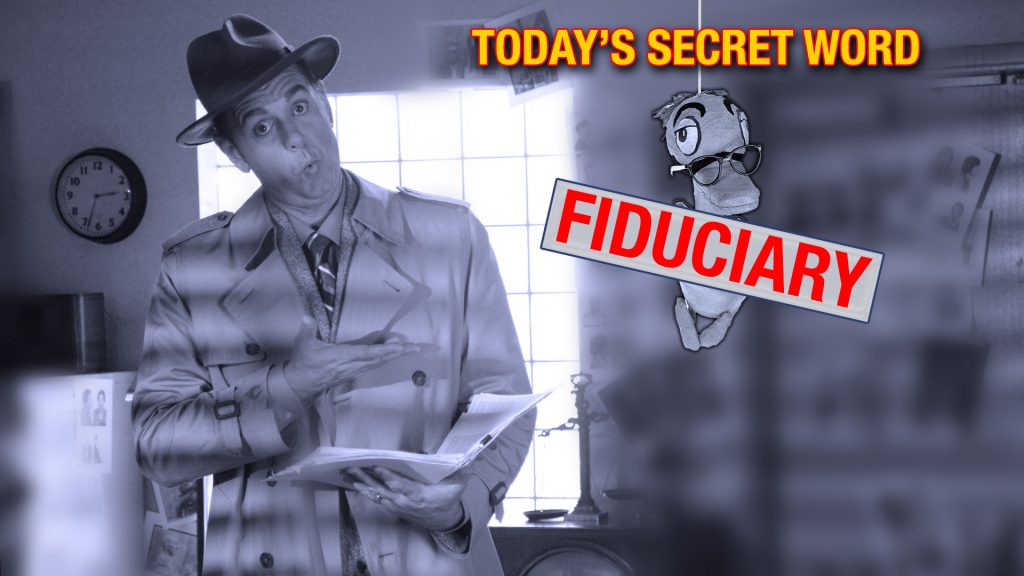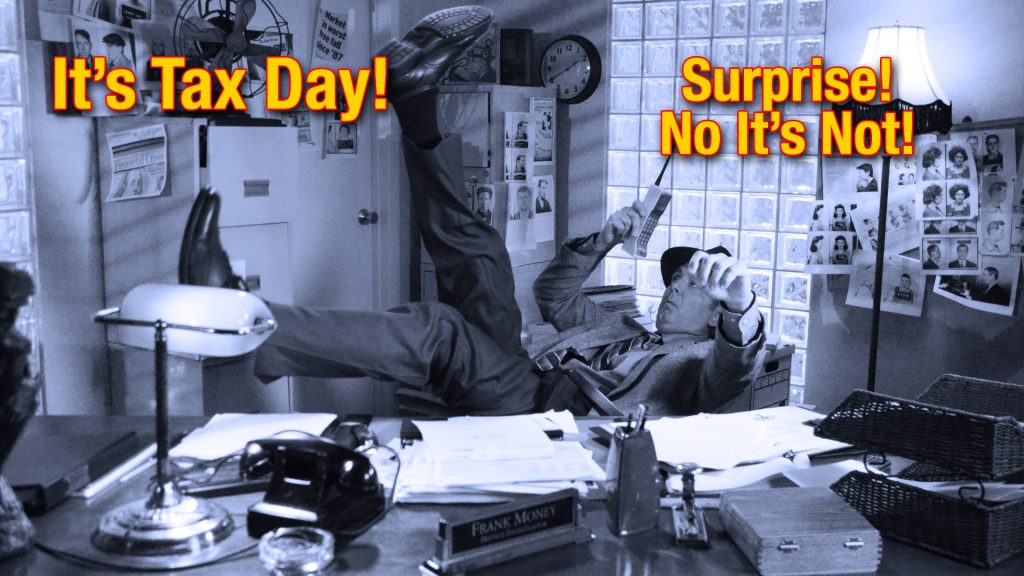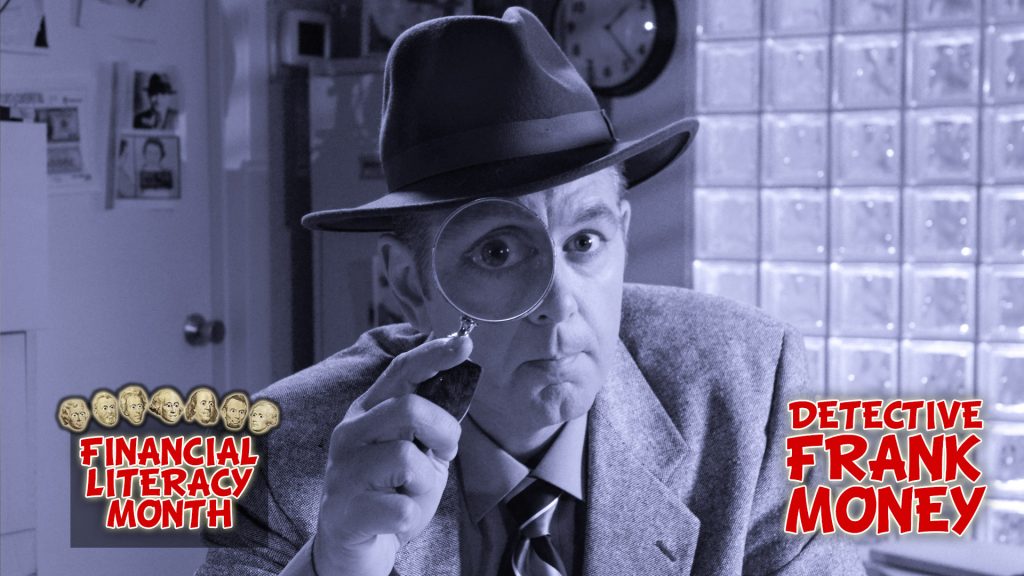 Today’s secret word – Fiduciary!
Today’s secret word – Fiduciary!
Now as words go, this detective finds that word to be a long…and maybe a little intimidating.
But when it comes to your finances, fiduciary is your friend! The definition of the word is “involving TRUST, especially to the relationship of a trustee and a beneficiary.”
In my line of work, trust is a big deal! In the world of money and financing, it establishes how the relationship between you and a financial advisor or institution works.
Here’s a case – Mark wanted to put the money he is saving in his IRA for retirement in a mutual fund. He asked a financial advisor for advice on which fund to purchase. The advisor gave him a couple of choices, but when Mark investigated the funds closer, he discovered that the funds carried high fees. Which would mean, he might make less on his investment over time.
Now there was nothing wrong with the funds the financial advisor recommended, but most likely the reason he recommended them was because the advisor would profit from the sale of the mutual fund to Mark – probably in the form of a commission. Which means that the advisor has some ‘skin in the game’ when it comes to selling something to Mark. The advisor is working in both his own and Mark’s interests – and just so everyone understands, there is nothing illegal about this, in fact, it’s quite common.
But if Mark had an advisor with a FIDUCIARY DUTY on his behalf, that advisor would be required to ONLY act in Mark’s best interests.
A fiduciary is expected to manage the assets FULLY for the benefit of the other person rather than for his or her own profit.
TRUST me, take this detective’s advice – when you are asking for financial advise, also ask whether the advise comes with a FIDUCIARY DUTY,
April is National Financial Literacy Month, Detective Frank Money’s favorite month! Let’s all celebrate by becoming more financially aware!

 I’m Frank Money, and I’ve got a question for you. What’s the most expensive purchase you’ll make in your life? A car? Nope. A house? You might think so but you would be wrong. Actually, it’s your retirement. Bet you didn’t even think about that answer.
I’m Frank Money, and I’ve got a question for you. What’s the most expensive purchase you’ll make in your life? A car? Nope. A house? You might think so but you would be wrong. Actually, it’s your retirement. Bet you didn’t even think about that answer. It’s Tax Day!
It’s Tax Day!
 April is National Financial Literacy Month, Detective Frank Money’s favorite month!
April is National Financial Literacy Month, Detective Frank Money’s favorite month! When you think about it, Insurance and Risk Management are really the same thing. Adults who own homes have all kinds of insurances including protecting their home and belongings. But when first starting out in the working world, or even before when attending college, insurance is also a big must have – and, like popsicles, Insurance comes in lots of different flavors.
When you think about it, Insurance and Risk Management are really the same thing. Adults who own homes have all kinds of insurances including protecting their home and belongings. But when first starting out in the working world, or even before when attending college, insurance is also a big must have – and, like popsicles, Insurance comes in lots of different flavors.